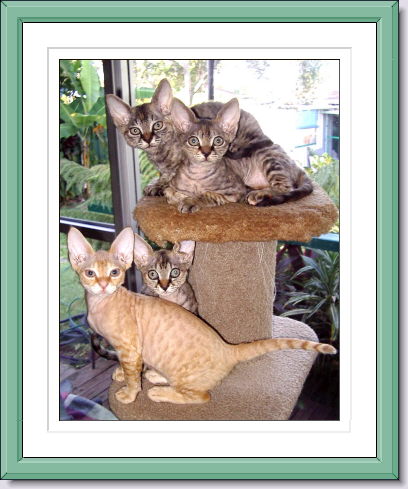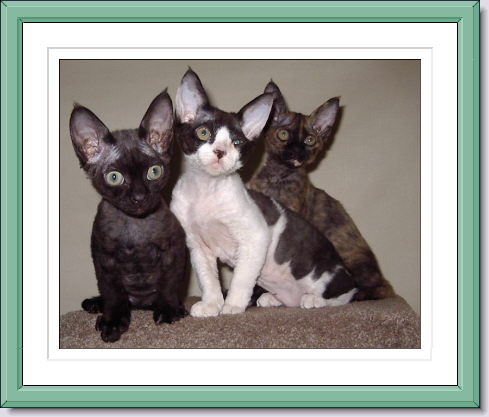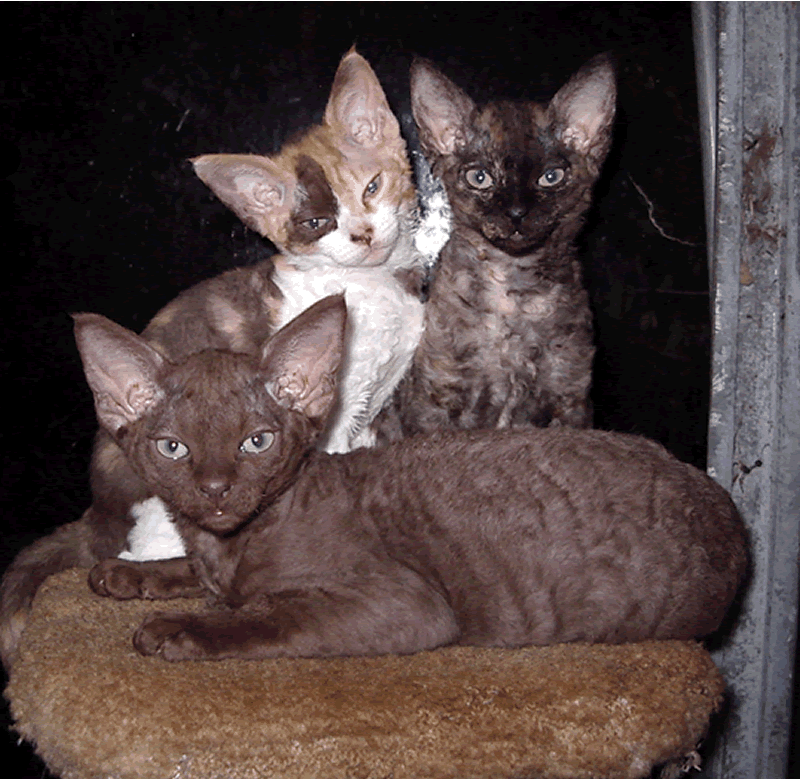|
In Buckfastleigh, Devonshire, England, in 1960, a certain Miss Cox became aware of
a curly tom cat living in a deserted tin mine near her home. It therefore came as no surprise to her then when one day a stray
tortiseshell female gave birth to a curly-haired kitten. She considered him quite beautiful, with lots of curls and even ringlets
on his tail. For the past ten years, the curly-haired "Rex" breed that was to become today's Cornish Rex had been quite the
rage in England, and many English
breeders had been eagerly working with these "poodle cats". Delighted with her kitten,
Miss Cox named him "Kirlee".
As Kirlee grew, Miss Cox contacted a Mr. Brian Stirling-Webb, who was working to
establish the curly-haired "Rex" (after the curly-haired Rex rabbits) cats as a breed, and offered the use of Kirlee as an
outcross, to help increase the size of the Rex gene pool.
Mr. Stirling-Webb and the other rex breeders were
indeed very excited to hear the news. They persuaded Miss Cox to send them Kirlee to use with their rex program. Kirlee was
mated with several rex females and eagerly awaited the upcoming kittens. To everyone's surprise, the resulting kittens were
all straight-haired!
After several additional attempts, it was apparent that Kirlee represented a completely separate
genetic variation than that found in the other "Rex" cats (who became referred to as "Gene I" Rex, as opposed to Kirlee's
"Gene II"). Work proceeded apace to establish both as independent breeds.
The "Gene I" Rex cat became known as the
Cornish Rex, due to their origin in Cornwall, England (quite close to Devonshire), and has a curly coat with no guard hairs,
and awn hair that is difficult to distinguish from the down. The body type is somewhat reminiscent of the "oriental" breeds
of cats (such as Siamese), and the head is comprised of a series of smooth oval shapes.
Kirlee and the "Gene II" Rex
cats became known as the Devon Rex, and established a look and breed characteristics distinctly their own. The Devon's coat
contains all three types of hairs, although somewhat modified, and has a larger and looser curl than the Cornish Rex. The
body type is very different as well, stockier and more heavily built, with a broader and shorter head with lower ears, and
the distinctive "pixie" or "elfin" that has come to be the hallmark of the Devon look.
In 1967, Great Britain's Governing
Council of the Cat Fancy (GCCF) recognized the distinction between the two breeds, and wrote standards to allow each of them
into competition as distinctive breeds of cat.
The Devons became very popular among many who were attracted to not
only their unique appearance, but their distinctive personalities as well.
Broughm (source: Ann Gibney -- Private
Collection)
All photos on this page are of Shirlim kittens.
|



